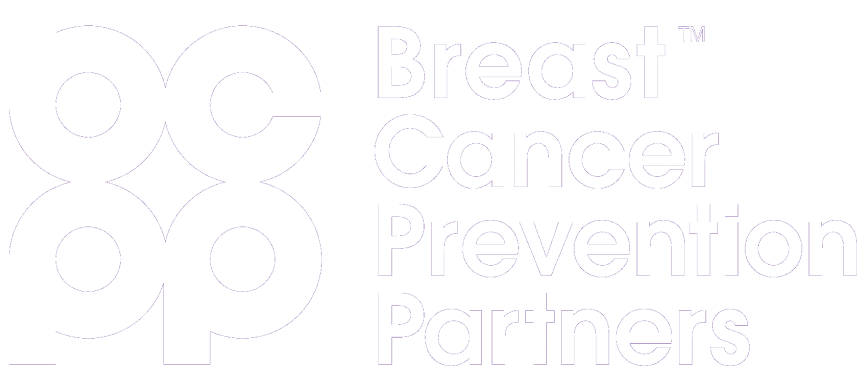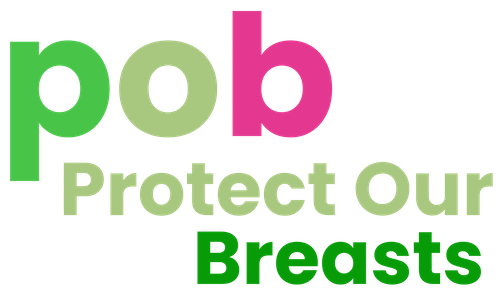Around 90% of breast cancer cases are not linked to family history.
We educate the next generation to prevent breast cancer before it starts by making safer choices during their most vulnerable years.
Protect Our Breasts empowers young people to...
Educate
By translating complex environmental health science into practical choices that reduce toxic chemical exposure during critical developmental periods.
Advocate
By training student leaders to become environmental health advocates who push for policy changes and industry accountability.
Activate
By building a nationwide network of student-led chapters and “Activators” that bring peer-to-peer environmental health education directly to college campuses and beyond.
Transform Markets
By partnering with 120+ organic brands and driving consumer demand for safer products and transparent supply chains.
Mission Statement
1 in 8 women today will be diagnosed with breast cancer.
Yet young women ages 18-25 are most vulnerable to environmental exposures that increase breast cancer risk later in life.
That’s why POB focuses on prevention education during college years—when students are forming lifelong habits and can protect themselves and future generations.
Prevention Through Education
Our Impact
environmental
health education
activated
partnerships
participated in POB
chemical exposures and safer alternatives
Protect Our Breasts is a program of
Breast Cancer Prevention Partners (BCPP)
In February 2025, Protect Our Breasts was integrated into Breast Cancer Prevention Partners. BCPP is the only breast cancer organization focused solely on prevention, working to eliminate the toxic chemicals and environmental exposures linked to the disease.
This strategic partnership unites BCPP’s expertise in science, market-based change, and public policy with POB’s proven success in engaging collegiate and high school communities to advance breast cancer prevention across campuses nationwide.


Current Initiatives
Chapter Network Expansion
Brand Partnership Program
Policy Advocacy Training
Bra Pong
Join the Movement
Your involvement can help prevent breast cancer for your generation and beyond.
FAQs
How can I start a POB chapter on my campus?
Ready to make a difference? Starting a Protect Our Breasts chapter is one of the most impactful ways to bring environmental health education to your campus.
What is a POB Chapter? A POB chapter is a student-led group that educates peers about environmental toxins linked to breast cancer. Each chapter operates independently, with presidents empowered to structure their team with elected positions (vice president, treasurer, secretary, etc.). Chapters plan and execute their own meetings, tabling events, and fundraisers with full support from our National Executive Board.
What comes from founding a chapter? You’ll learn the science behind environmental health and share safer alternatives with your community. You’ll create connections with like-minded individuals, influence the everyday choices of peers and family members, gain meaningful professional experience that stands out on resumes, and most importantly—help prevent breast cancer before it starts.
What resources and support do I receive from starting a chapter? We provide everything you need to succeed, including complete tabling and Bra Pong event kits, monthly meeting slides with activities, educational resources, startup guidance, free products for events, brand guidelines, and ongoing mentorship from our National Executive Board.
Ready to get started? Contact us to receive an updated Chapter Toolkit with everything you need to launch successfully on your campus!
Contact us at pob@bcpp.org with any questions.
What are the main toxic chemicals I should avoid?
Since the 1970s, over 80,000 industrial chemicals have entered the U.S. market, yet only 5% have been tested for cancer risk. Personal care products alone contain 10,000 chemicals—the EU has banned 2,400 toxic substances while the U.S. has banned only 11.
The average American uses 12 personal care products daily and is exposed to 168 unique chemicals every day, many linked to harmful health effects. Scientists have now linked more than 900 chemicals to breast cancer—like BPA, benzene, bisphenols, phthalates, PFAS, parabens, flame retardants, and microplastics.
While this sounds overwhelming, knowledge is power—and small changes make a real difference.
The key isn’t perfection—it’s progress. Rather than feeling overwhelmed, we focus on:
- Learning about safer alternatives through our brand partnerships
- Supporting legislative changes that improve chemical regulation
- Making informed choices where we can control our exposures
For detailed information about specific chemicals and their health effects, explore BCPP’s Glossary of Exposures where research is broken down into actionable guidance.
How do I know if a product is actually safer?
Navigating “greenwashing” and marketing claims can be confusing, but you don’t have to figure it out alone. Our team of scientists reviews products and brands to help separate genuine safer alternatives from misleading marketing.
What we look for:
- Transparent ingredient lists and supply chains
- Third-party certifications [graphic available; will upload to Sharepoint]
- Companies that avoid known endocrine disruptors and carcinogens
- Brands committed to ongoing improvement and accountability
- Consideration given to packaging safety
Tools and Resources:
- Clearya – Use this browser extension to identify toxic ingredients while shopping online
- Think Dirty app – Ranks product safety on a 1-10 scale with cleaner alternatives
- Safer retailers – Shop at stores like Credo Beauty that pre-screen products for safety
- BCPP Consumer Guides – Our guides for choosing safer products
- Tip Sheet (adding link)
Where intention meets reality: Even with the best intentions, perfect products don’t exist. We focus on supporting companies making genuine efforts toward safer formulations while advocating for better regulations that protect everyone.
Why is POB’s work so important?
Breast cancer is striking younger women at alarming rates—it’s now the leading cause of cancer death among women ages 20-39, and women under 40 are nearly 40% more likely to die from this disease.
Despite breast cancer being the most common cancer for women worldwide and affecting 4.3 million Americans, less than 7% of research funding goes to primary prevention—the type BCPP and POB focus on.
POB fills this critical gap by reaching young women during their most vulnerable years, when prevention education can have the greatest impact. We’re working to change these statistics before another generation faces these devastating outcomes.
How can I get more involved?
Ready to expand your impact? Join our growing network of Activators—mission-driven advocates who champion POB’s work beyond individual campuses.
Activator Opportunities:
- Campus Activators: Join POB even if your school doesn’t have a chapter yet
- Community Activators: Bring environmental health education to local organizations, parent groups, and community events
- Alumni Activators: Continue your advocacy after graduation through professional networks and mentorship
What Activators do:
- Amplify POB’s message through personal and professional networks
- Mentor new chapter leaders and student advocates
- Participate in nationwide and more localized campaigns and advocacy initiatives
- Share expertise and resources across the POB community
- Connect with like-minded advocates building a prevention-focused movement
Ready to activate? Contact us at pob@bcpp.org to learn more about Activator opportunities that match your interests, skills, and availability. Together, we’re building a movement that reaches far beyond any single campus.
